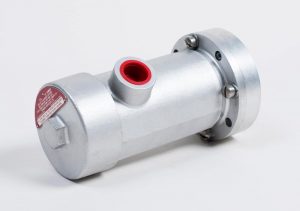How Wisconsin Aluminum Foundry supports high-tech manufacturing
Wiki Article
The Essential Uses of Aluminum Foundry in Various Industries and Their Effect
Aluminum foundries function as a necessary resource within various sectors. Their sturdy and lightweight products significantly boost efficiency in automobile, aerospace, construction, and electronic devices sectors. As each industry leverages light weight aluminum's special residential or commercial properties, they also add to sustainability initiatives. This complex influence triggers a deeper exploration of just how Aluminum formed these industries. What specific developments and benefits occur from its usage?Automotive Market Applications
The auto market progressively depends on Aluminum Foundry applications to improve car efficiency and efficiency. Light weight aluminum's lightweight nature contributes significantly to sustain economic climate, making it a favored choice for producers aiming to lower emissions and boost general vehicle dynamics. Elements such as engine blocks, transmission real estates, and wheels are generally generated through Aluminum casting procedures, enabling for intricate styles that satisfy strenuous safety and security and efficiency criteria.
Aerospace Innovations

Additionally, making use of aerospace-grade Aluminum alloys enhances resistance to deterioration and tiredness, important for the demanding atmospheres aircraft face. Technologies in additive production also enable for fast prototyping and modification of components, reducing lead times and expenses.
Construction and Facilities
While the building and framework fields remain to progress, Aluminum foundries are increasingly acknowledged for their contributions to contemporary structure techniques. Aluminum's lightweight nature and high stamina make it a perfect material for numerous structural applications. Factories provide parts such as beams, frameworks, and frontages that improve the longevity look at this site and long life of structures and infrastructure projects.Aluminum's rust resistance plays an essential duty in expanding the life expectancy of structures exposed to extreme environmental problems. The energy performance of Aluminum products also straightens with sustainable structure initiatives, adding to reduced power consumption in building and construction. Furthermore, innovative spreading techniques have broadened the design opportunities, permitting engineers and engineers to create aesthetically pleasing yet functional structures.
Electronic devices Manufacturing
Aluminum shops play a significant duty in the electronics producing market, where the demand for thermally conductive and lightweight materials is critical. Aluminum Foundry. Parts such as heat sinks, housings, and brackets are commonly generated making use of Aluminum because of its outstanding thermal properties and capability to dissipate heat properly. This is important in electronic tools, where getting too hot can lead to failing and decreased efficiencyThe versatility of Aluminum enables for intricate layouts and exact machining, which are essential in contemporary electronic devices. Additionally, aluminum's non-magnetic residential properties make it suitable for applications in sensitive electronic tools, lessening interference. Aluminum's resistance to rust enhances the sturdiness of digital components, making sure durability and dependability.
Sustainability and Recycling Initiatives
Offered the boosting focus on environmental responsibility, the Aluminum Foundry market has made considerable strides in sustainability and reusing efforts. Aluminum is naturally recyclable, permitting factories to recover and reuse product with marginal energy expense contrasted to key manufacturing. This closed-loop recycling process not only minimizes waste however likewise decreases greenhouse gas emissions, adding to a much more lasting manufacturing version.Numerous factories are taking on energy-efficient innovations, including renewable energy sources, to power their operations. This shift not only decreases reliance on fossil fuels but likewise enhances overall operational efficiency
Sector cooperations are additional promoting lasting methods, such as sharing finest practices and establishing cutting-edge reusing methods. By prioritizing these efforts, look at this website the Aluminum Foundry sector is positioning itself as a leader in lasting manufacturing, lining up with worldwide targets for sustainability while meeting the demands of numerous industries.

Often Asked Questions
What Are the Primary Advantages of Using Aluminum in Foundry Processes?
The primary benefits of making use of Aluminum in Foundry procedures include its light-weight nature, outstanding deterioration resistance, high thermal and electrical conductivity, and adaptability, permitting for elaborate layouts and reliable recycling, eventually boosting overall manufacturing performance and lowering expenses. - Aluminum FoundryJust How Does Aluminum Foundry Impact Item Lifecycle Monitoring?
Aluminum Foundry considerably improves item lifecycle monitoring by enabling effective material use, minimizing waste, and promoting recycling. Its light-weight residential or commercial properties improve transport performance, while toughness extends item lifespan, inevitably contributing to sustainability and cost-effectiveness in production.Are There Certain Obstacles in Aluminum Foundry Manufacturing?
Certain difficulties in Aluminum Foundry manufacturing include managing temperature level control, ensuring material top quality, minimizing waste, and adjusting to rising and fall market demands. These elements can impact performance, cost, and total competition within the sector.What Precaution Are Vital in Aluminum Foundry Operations?
Important precaution in Aluminum Foundry operations consist of personal protective devices, correct air flow, regular devices upkeep, threat communication, and emergency situation response training. Executing these methods assurances worker security and reduces risks connected with high-temperature steel handling.Exactly how Does the Cost of Aluminum Contrast to Other Metals in Foundry Use?
The price of Aluminum is generally less than that of metals like copper and titanium, making it a cost-effective choice for numerous Foundry applications. This affordability adds to its extensive usage across various sectors.Aluminum foundries serve as an important resource within countless sectors. The auto market progressively depends on Aluminum Foundry applications to improve lorry efficiency and effectiveness. The material's recyclability additionally aligns with the industry's press in the direction of sustainability, as her response recycled Aluminum needs substantially less energy to procedure contrasted to main light weight aluminum. Aluminum shops play a considerable duty in the electronics manufacturing market, where the need for light-weight and thermally conductive products is critical. Given the raising emphasis on environmental duty, the Aluminum Foundry sector has made substantial strides in sustainability and recycling initiatives.
Report this wiki page